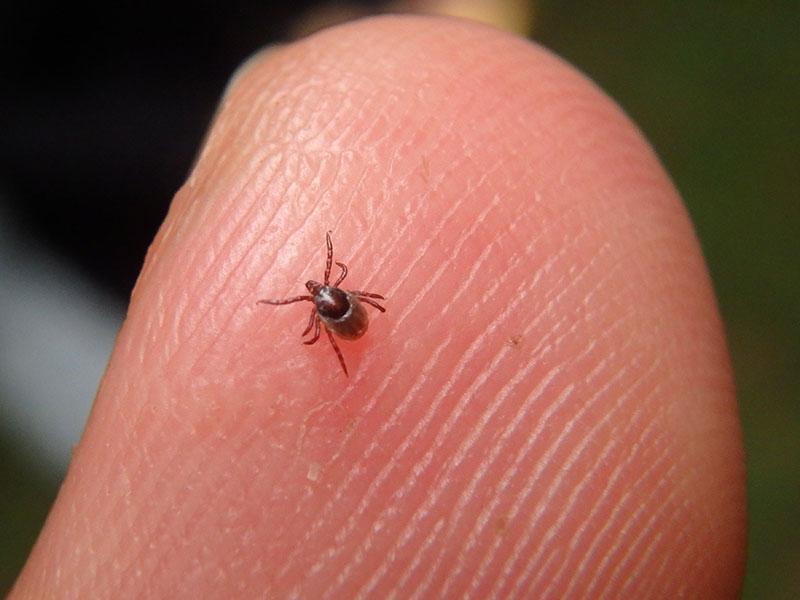Ticks are small, spider-like creatures that feed on the blood of animals and people and you may not notice them at first, so be careful when walking though fields or woodland.
Their bites can cause very serious conditions if left untreated, though, including Lyme disease.
Tick activity peaks between April and June, so we're right in the middle of ‘tick season'.
Regularly check for ticks on your clothes and skin, and on children and pets, after being outdoors.
Simply steps to avoid tick bites:
- walk on clearly defined paths
- avoid dense vegetation
- use insect repellent which repels ticks
- wear light colour clothing so ticks are easier to spot
- carry out a tick check after you’ve been outside - look and feel for attached ticks on you, your family and your pets.
The government has some top tips on its website.
Look out for anything as tiny as a freckle or speck of dirt. Ticks prefer warm areas such as the groin area, waist, armpits, behind the knee and along hairlines.
If you do find one, remove it correctly and safely using a pair of fine-tipped tweezers or a tick removal tool.
Then apply antiseptic to the bite area and keep an eye on it.
If you start to feel unwell, contact your GP or call NHS 111 and make sure you tell them you’ve been bitten by a tick.
A common early sign of Lyme Disease is a circular rash which looks like a bulls-eye and might get bigger. But not everyone gets a rash – sometimes Lyme Disease might feel like mild ‘flu.
Find out more, including how to remove a tick, on our website.

